
Columbia University faculty and researchers are encouraged to apply to the Faculty Visitorship Program at Reid Hall, jointly supported by Columbia Global Centers | Paris and the Institute for Ideas and Imagination. Visitors are invited to stay for one to three weeks.
2024–25 Application
Columbia University faculty and researchers are encouraged to apply to the Faculty Visitorship Program at Reid Hall, jointly supported by Columbia Global Centers | Paris and the Institute for Ideas and Imagination. Visitors are invited to stay for one to three weeks.
The deadline for 2024 – 2025 applications is April 30, 2024.
Eligible projects can include working with Institute Fellows or other colleagues in Paris, conducting research, and organizing workshops, talks, or conferences. Visitors will be asked to contribute to our podcast/video series or take part in a public lecture or panel discussion.
Funding covers travel and housing and includes administrative support and office space at Reid Hall. We will cover your round-trip flight from New York to Paris (capped at $1,500). Additional funds will also be available for travel within France and Europe, and for research and programming.
Questions may be addressed to: Marie Doezema, Special Projects Manager ([email protected])
2023–24
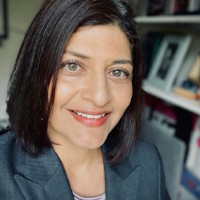
Nina Alvarez is a journalist, documentarian and video photographer. For over twenty-five years, she has reported breaking news and feature stories from around the world, on broadcast and web segments, radio reports and long-form documentaries.
Alvarez began her journalism career at ABC News, where she was a production associate on the acclaimed documentary series, Turning Point. She went on to work in the Miami Bureau covering news in the southeast US and Latin America and established the Mexico City Bureau in 1997, reporting and producing breaking news, feature and investigative stories in Latin America and the Caribbean. Her work with the network's top on-air talent was broadcast on World News Tonight with Peter Jennings, Good Morning America, Nightline and 20/20 and was recognized with three national Emmy Awards.
Since 2001, she has reported and produced news and longform stories for Univision, NBC, CNN, NPR, MTV News and Al Jazeera from the Middle East, Africa, Central Asia and Latin America. From 2015 to 2017, she was also Senior Producer at the Fusion/Netflix investigative series, The Naked Truth, which was recognized with the Alfred I. duPont Columbia Journalism Award, an Emmy nomination and the Al Neuharth Award for Innovation in Investigative Journalism. Alvarez is currently a Senior Editor of Investigative Projects at Futuro Media Group.
An important theme in Alvarez's work has been the experience of migration, historically and today. She has produced numerous video reports on refugees, undocumented laborers. victims of violence or exploitation and children. In 2001, she crossed the desert border herself on assignment with ABC News Nightline. She was a producer on the Oscar-nominated film, Which Way Home (2009). She produced an episode for the landmark PBS series, Latino Americans (2012), for which she received a Peabody Award and the Imagen Award. Her short film, Fields of Promise (link is external) (2016), was broadcasted on America ReFramed (PBS World Channel) and awarded the Alfred I. duPont Columbia Journalism Award. She is currently documenting the stories of Salvadoran refugees in the US, some of whom fled the civil war over thirty years ago and are now fighting deportation. The project has received support from the Independent Television Service and Latino Public Broadcasting.
The rights of women and girls is also an important theme in Alvarez's work. At ABC, she produced several stories about domestic violence in immigrant, low income and wealthy communities. In 2005, she documented the stories of women in northern Nigeria with injuries related to giving birth for the International Reporting Project Fellowship. In 2006, Alvarez produced, directed and photographed the Showtime documentary, Very Young Girls (link is external), which follows the stories of several New York City girls who were sexually exploited and trafficked domestically.
Alvarez is a native New Yorker, daughter of Salvadorans and mother of a Salvadoran-Irish-French-American daughter.
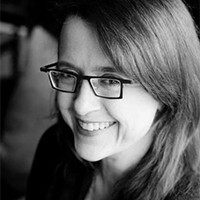
Patricia Dailey is an Associate Professor of English and Comparative Literature at Columbia University. Her work spans medieval literature, contemporary philosophy, gender studies, psychedelic studies, and eco-criticism. She is the author of Promised Bodies: Time, Language, and Corporeality in Medieval Women’s Mystical Texts (Columbia UP 2013), which sought to reconsider the critical language associated with embodiment by recasting it in the context of a poetics. Along with Veerle Fraeters, she is co-editing a Brill Companion to Hadewijch, forthcoming. She is currently pursuing several projects: while visiting Reid Hall she will be pursuing work on trees and branching, finishing a book on the arboreal sublime; she is also writing an experimental autobiography of parentheses, or, what could be called life, in parentheses. She is the founder of the Colloquium for Early Medieval Studies, co-founder of the Affect Studies University Seminar, and Co-Chair of the Women’s Gender, and Sexuality Studies Council. She has taught in France at the Université de Lille 3, and the Collège International de Philosophie.
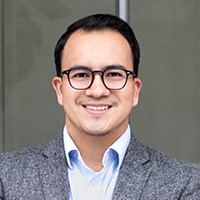
Josh DeVincenzo is the Assistant Director of Training and Education and Adjunct Lecturer at Columbia Climate School's National Center for Disaster Preparedness. Josh's research interests examine the relationship between climate change and mental models. Josh's expertise lies in developing lifelong learning experiences on disaster preparedness, mitigation, recovery, and resilience. He has created national-scale curricula in the United States on disaster financial literacy, economic impact analysis, and community partnerships. Josh aims to provide accessible and quality educational programming on a large scale, focusing on climate change and equity. He has published his work on climate pedagogy and cognition in esteemed journals and outlets such as the Journal of International Affairs, Routledge, State of Planet, and the Hill. Josh holds a master's degree in Education Policy, Organization, and Leadership from the University of Illinois at Urbana-Champaign.
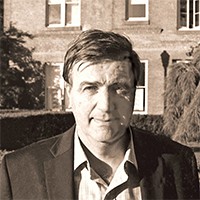
Pierre Force received his academic training in France, where he was a fellow of the École normale supérieure. He took his BA in Classics (1979), doctorate in French (1987), and habilitation (1994) at the Sorbonne. He first came to the United States in 1984 as a lecturer at Yale University, and he joined the Columbia faculty in 1987. He works at the interface between the humanities and the social sciences and has published in the fields of early modern French literature, intellectual history, and social history. He is the author of Le Problème herméneutique chez Pascal (Paris: Vrin, 1989), Molière ou Le Prix des choses (Paris: Nathan, 1994), Self-Interest before Adam Smith (Cambridge University Press, 2003), and Wealth and Disaster (Johns Hopkins University Press, 2016). He chaired the French Department from 1997 to 2007 and is also a member of the History Department. From 2011 to 2014 he served as the inaugural Dean of Humanities in the Faculty of Arts and Sciences. He received the Columbia Distinguished Faculty award in 2005 and a Guggenheim fellowship in 2009. He has been a visiting professor at Princeton, Paris VII, Paris XIII, and the École normale supérieure. His teaching interests include French classicism and its reception, hermeneutics and rhetoric, historiography, the history of economic thought, and Atlantic history.
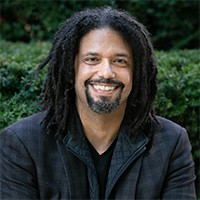
Frank Andre Guridy is the Dr. Kenneth and Kareitha Forde Professor of African American and African Diaspora Studies. He is also Professor of History and the Executive Director of the Eric H. Holder Initiative for Civil and Political Rights at Columbia. He is an award-winning historian whose recent research has focused on sport history, urban history, and the history of American social movements.
His latest book, The Sports Revolution: How Texas Changed the Culture of American Athletics (University of Texas Press, 2021) explored how Texas-based sports entrepreneurs and athletes from marginalized backgrounds transformed American sporting culture during the 1960s and 1970s, the highpoint of the Black Freedom and Second-Wave feminist movements. Guridy is also a leading scholar of the Black Freedom Movement in the United States and in other parts of the African Diaspora. His first book, Forging Diaspora: Afro-Cubans and African Americans in a World of Empire and Jim Crow (University of North Carolina Press, 2010), won the Elsa Goveia Book Prize from the Association of Caribbean Historians and the Wesley-Logan Book Prize, conferred by the American Historical Association. He is also the co-editor of Beyond el Barrio: Everyday Life in Latino/a America (NYU Press, 2010), with Gina Pérez and Adrian Burgos, Jr.
His writing and commentary on sport, society, and politics have been published in Public Books, Columbia News, NBC News.com and the Washington Post. His fellowships and awards include the Scholar in Residence Fellowship at the Schomburg Center for Research in Black Culture and the Ray A. Billington Professorship in American History at Occidental College and the Huntington Library. He is also an award-winning teacher, receiving the Regents’ Outstanding Teaching Award from the University of Texas at Austin in 2010, and the Mark Van Doren Award for Teaching at Columbia in 2019. He was also a winner of Columbia’s Faculty Service Award in the spring of 2023. His current book project, The Stadium: An American History of Protest, Politics, and Play, under contract with Basic Books, is a history of the American stadium as a community institution that illustrates the central role it has played in American civic and political life.
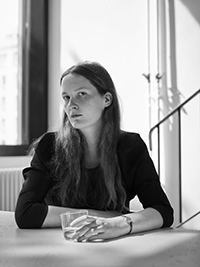
Irena Haiduk directs Yugoexport, a blind and non-aligned oral corporation whose founding logic is equivalence, loyalty, and familial solidarity between people and things. Initiated as a copy of the former Yugoslav apparel and weapons manufacturer Jugoeksport, Yugoexport is formally incorporated in the United States (where corporations are people), launched in Paris and headquartered in New York. Their maxim, How To Surround Your Self With Things In The Right Way, powers the production of images, books, apparel, orations, films, scenographies, and variable spaces, all designed to nourish the organ of imagination. Irena Haiduk often collaborates with institutions like the Renaissance Society at the University of Chicago, Istanbul Biennial, Whitney Museum of American Art, documenta 14, Swiss Institute, Sternberg Press, Art Basel, Acne Studios, to name a few.
Haiduk’s work is invested in relationships between aesthetics and economy, image ecology and the way that economic infrastructures leave clear aesthetic marks. She believes that to work in an aesthetic field rooted in making desires, to make art today, is to share the responsibility for what aesthetic economies maintain. Desires, many of them powered by art, brought us here. As our planet becomes impossible to physically inhabit, it is urgent to ask again, from many directions and on every level: how can we desire differently?
There are many ways to start. Art provides means to construct a public place, a studio for study, testing and learning where vital conversations find many forms. Since 2018, Irena Haiduk's studium has been hosted, in part, by the Department of Art History at Barnard College where Haiduk is Assistant Professor of Professional Practice. Current lines of study and practice are named Buoyancy, Loving, and The Third Way.
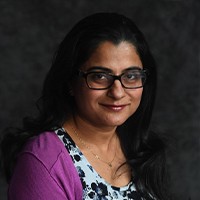
Dr. Radhika Iyengar is Director of Education and Research Scholar at the Center for Sustainable Development of Columbia University’s Earth Institute. She leads the Education for Sustainable Development initiatives as a practitioner, researcher, teacher and a manager. Her research interests consist of conducting evaluations of educational programs and international educational development. In addition to directing education initiatives at the Center and fieldwork in over 10 countries, she contributes to the scientific community focusing on international educational development with articles published in reputed journals and reports that are used by both domestic and international stakeholders. She received a distinction from Teachers College, Columbia University on her Ph.D. dissertation Social capital as a determinant of schooling in rural India: A mixed methods study. She received her Master’s degree in Economics from the Delhi School of Economics, India.
Radhika has been working in the areas of sustainable development and environmental education at the Center for Sustainable Development since 2011. At the Center she collaborated with scientists, health experts, environmentalists and others on various topics such as education on COVID, mental wellbeing and environmental science education. She has been working with Governments and NGOs in multiple-countries advising on designing education and environmental education programs. Her current research includes testing for high fluoride content in water sources in Central India. She received the prestigious Earth Frontiers grant in 2020 on community-based education on fluoride testing.
She has over 15 years of experience in international education development. She has recently co-edited two books, Teacher Education in South Asia with Palgrave Macmillan and Interrogating and Innovating Comparative and International Education Research with Sense Publication in 2019. Her latest article is on Education as the path to a sustainable recovery from COVID-19 in UNESCO’s Prospects Journal. Previously, she received a distinction from Teachers College, Columbia University on her Ph.D. dissertation. She recently received an Early Career award from Teachers College. Columbia University. She was the Chair of Environmental and Sustainability Education Special Interest Group at the Comparative and International Education Society and is currently a Board member of Comparative and International Education Society. She is also a Board member of other entities such as the Alliance for New Jersey’s Environmental Education and PAL Network among other NGOs.
Read her full bio: https://csd.columbia.edu/people/radhika-iyengar
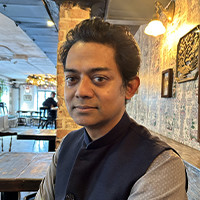
Naeem Mohaiemen is a filmmaker and writer who combines photography, films, and essays to research the many forms of utopia-dystopia (families, borders, architecture, and uprisings) in the Muslim World after 1945. Despite underlining a historic tendency toward misrecognition of allies, the hope for a future international left, as an alternative to current silos of race and religion, is always a basis for the work. A throughline in all his work is family unit as locus for pain-beauty dyads, abandoned buildings as staging ground for lost souls, and the necessity of small prevarications to keep on living. Several conversations in contemporary art museums around the historic Non Aligned Movement and Third Worldism pivoted around the premiere of his three-channel film, Two Meetings and a Funeral (2017), at documenta 14, Kassel. Historian Vijay Prashad (The Darker Nations, 2007) describes his work as having “the air of being unfinished because the history he is working on is unfinished.”
Mohaiemen is author of Midnight’s Third Child (Dhaka: Nokta / University of Liberal Arts, 2023) and Prisoners of Shothik Itihash (Basel: Kunsthalle Basel, 2014); editor of Chittagong Hill Tracts in the Blind Spot of Bangladesh Nationalism (Dhaka: Drishtipat, 2010); and co-editor with Eszter Szakacs of Solidarity Must be Defended (Budapest: Tranzit / University of Budapest, 2023) and with Lorenzo Fusi of System Error: War is a Force that Gives us Meaning (Sienna: Sylvana, 2007). Monographs on his films include What We Found After You Left (Toronto: Power Plant, 2021).
Mohaiemen has a Ph.D. in Anthropology (Columbia ‘19) and is Associate Professor of Visual Arts and Head of Photography Concentration at Department of Visual Arts, School of Arts, Columbia University. Previously, he was a Senior Research Fellow at Lunder Institute of American Art at Colby College, Nadir Mohamed Fellow at Toronto Metropolitan University, and He was a Senior Research Fellow at Lunder Institute of American Art, Colby College; Nadir Mohamed Fellow at Ryerson Image Centre, Toronto; and Mellon Fellow at the Society of Fellows, Heyman Center, Columbia University. Projects have been supported by Andy Warhol Foundation, Ford Foundation, Creative Time, Guggenheim Fellowship, Wenner Gren Foundation for Anthropology, Social Science Research Council, Elephant Trust, Arts Council, and Creative Capital. Mohaiemen was a finalist for the Villem Flusser Theory Award (2009), Mario Merz Prize (2015), Turner Prize (2018), and Herb Alpert Award (2019).
He has had solo shows at Gallery Chitrak, Dhaka; Cue Art Foundation, New York; MoMA PS1, New York; Bildmuseet, Umea; Power Plant, Toronto; SALT Beyoğlu, Istanbul; Kunsthalle Basel, Basel; Vox Contemporary Image, Montreal; and Centro Andaluz de Arte Contemporáneo, Seville. Group shows include Venice, Lahore, Sharjah, Marrakech, Momentum (Nordic), Eva (Ireland), and Chobi Mela Biennials; Tate Britain (Turner Prize show), MACBA, and Documenta 14. His work is in the permanent collections of Museum of Modern Art, New York; Tate Modern, London; MACBA, Barcelona; Van Abbemuseum, Eindhoeven; and Art Institute of Chicago, Chicago.
Faculty Profile; Academia; Studio
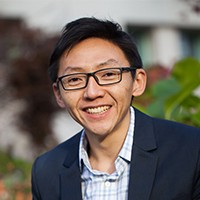
Ngai Yin Yip is the Lavon Duddleson Krumb Assistant Professor of Earth and Environmental Engineering at Columbia University. He received his doctoral degree in Chemical and Environmental Engineering from Yale University. Yip is passionate about developing innovative solutions for critical separation challenges in water, energy, and the environment. Driven by his commitment to sustainability, his research focuses on recovery of valuable resources from waste streams, lithium harvesting from brines, and water purification, including high-salinity desalination and zero-liquid discharge.
Dr. Yip's contributions have earned him numerous recognitions, including the James J. Morgan Early Career Award (Honorable Mention) from Environmental Science & Technology. He has also been featured as an Emerging Investigator in Environmental Science: Water Research & Technology and as a Young Talent in Frontiers of Environmental Science & Engineering. Dr. Yip actively serves as an editorial board member for Desalination and Chemical Engineering Journal Advances, and as an Early Career Board member for ACS ES&T Engineering.

Magdalena Baczewska [pronounced ba-CHEV-ska] is a concert pianist, harpsichordist, recording artist, producer, speaker, and educator. She holds the position of Senior Lecturer in Music and Director of the Music Performance Program at Columbia University. She has performed with prestigious orchestras worldwide, including the San Francisco Symphony, Philadelphia Orchestra, and China National Symphony. Collaborating with Oscar and Grammy Award-winning artists like Joshua Bell and Charles Fox, she has also toured extensively with composer Tan Dun, performing at the Tanglewood Music Festival, Guangzhou Opera House, Beijing National Center for Performing Arts, Davies Symphony Hall, and Philadelphia’s Kimmel Center. As a recitalist, Baczewska focuses on historical performance practice, and has earned acclaim for her double-bill performances of Bach’s Goldberg Variations, on the harpsichord and the piano.
Her discography encompasses various genres, from Baroque and Romantic solo music to collaborations with techno and hip-hop artists. She has produced the bestselling series of albums, "Music for Dreams," in collaboration with the Bluesleep medical team, researching and treating sleep disorders.
Baczewska has given talks and master classes around the world: Beijing Central Conservatory, New York University, International Keyboard Institute, Hong Kong Academy for Performing Arts, Manhattan School of Music. As a Yamaha Artist, she is among the pioneers of long-distance teaching using the cutting edge Yamaha Disklavier technology. At Columbia, she enjoys a busy academic life, teaching Music Humanities (a part of Columbia’s famed Core Curriculum), and the Performance Seminar, a course she designed for top musicians on campus. Embracing the dual role of an educator and administrator, Baczewska heads the Music Performance Program, mentoring and providing performance opportunities for nearly 500 student musicians, including members of the elite Columbia-Juilliard Exchange.
As an avid advocate of equal access to musical enrichment, Baczewska is committed to outreach, bringing music to non-specialist audiences. She has produced “Bach@Home,” a series of public-facing lecture performances, featuring music of both established and underrepresented composers. She also lectures for tonebase, a digital platform democratizing access to high-level music education. Born in Poland, she is a recipient of the Outstanding Achievement Award from the Polish Minister of Culture and National Heritage for promoting Polish culture abroad.
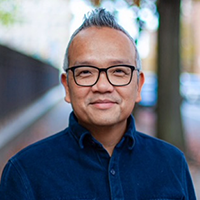
Duy Linh Tu is a journalist and documentary filmmaker, focusing on education, science, and social justice. His work has appeared in print, online, on television, and in theaters. He is also the author of "Narrative Storytelling for Multimedia Journalists" (Focal Press).
Professor Tu teaches reporting and video storytelling courses at the Journalism School. He is also a graduate of the program.
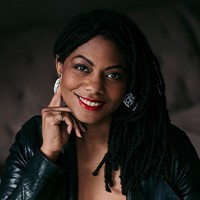
Tamara J. Walker is the author, most recently, of Beyond the Shores: A History of African Americans Abroad (Crown, 2023). Part historical exploration, part travel memoir, the book reveals poignant histories of a diverse group of African Americans who left the United States over the course of the past century. Like the talented young comedienne who graced theater stages in Paris and London. And the pair of gifted Black crop scientists who moved with their families for Uzbekistan. There’s also a career woman turned housewife who found herself searching for purpose in Germany, a Peace Corps volunteer discovering his power in Kenya, and so many others. Together, the interwoven stories highlight African Americans’ complicated relationship to the United States and to the world at large. At the Institute, she will organize a series of talks, workshops, and podcast recordings focused on the experiences of African Americans in Paris, past and present.
An historian and Associate Professor of Africana Studies at Barnard College, Tamara J. Walker's scholarship focuses on the history of slavery in Latin America and its legacies in the modern era. In addition to essays published in Gender & History, Slavery & Abolition, Souls, the Journal of Women’s History and elsewhere, she is the author of Exquisite Slaves: Race, Clothing, and Status in Colonial Lima (Cambridge, 2017), which won the 2018 Harriet Tubman Prize from the Schomburg Center for Research on Black Culture.
2022–23
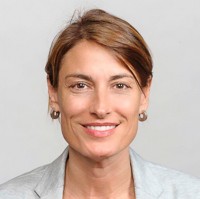
Francesca Bartolini is an Associate Professor of Pathology and Cell Biology at Columbia University Medical Center.
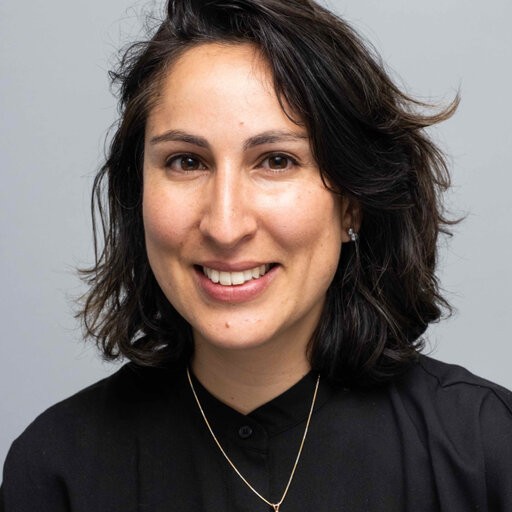
Lola Ben Alon is an Assistant Professor at Columbia GSAPP and the director of the Natural Materials Lab and the Building Tech curriculum.
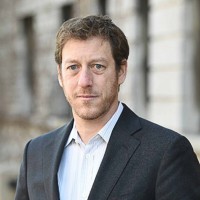
Michael Burger is the Executive Director of the Sabin Center for Climate Change Law and a Senior Research Scholar at Columbia Law School.
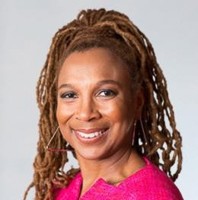
Kimberlé Crenshaw is the Isidor and Seville Sulzbacher Professor of Law.
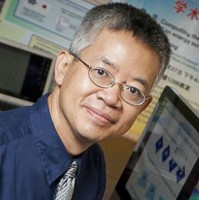
Qiang Du is a Fu Foundation Professor of Applied Mathematics.
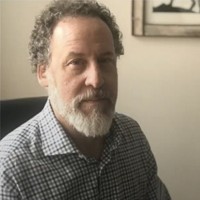
David Goldberg is the Deputy Director of Academic Affairs and Diversity at the Lamont-Doherty Earth Observatory.
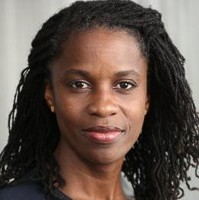
Olatunde Johnson is the Ruth Bader Ginsburg ’59 Professor of Law.
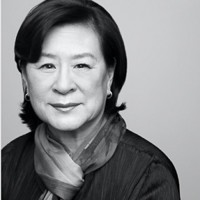
Mai Ngae is the Lung Family Professor of Asian American Studies and a Professor of History.
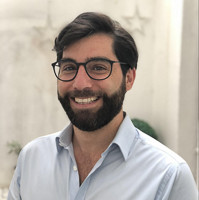
Alfredo Spagna is a Lecturer in the Discipline of Psychology and the Director of Undergraduate Studies in Neuroscience & Behavior.
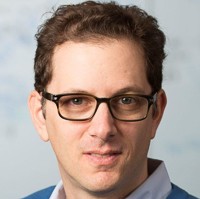
Adam H. Sobel is a Professor of Applied Physics and Applied Mathematics and of Earth and Environmental Sciences.
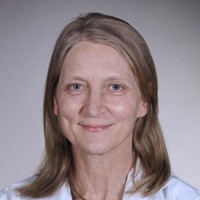
Delphine Taylor is an Associate Professor at the Columbia University Vagelos College of Physicians and Surgeons and an internist in New York City. She is affiliated with multiple hospitals in the area.

All events featuring Columbia Professors, including our Faculty Visitors, at Columbia Global Centers | Paris.